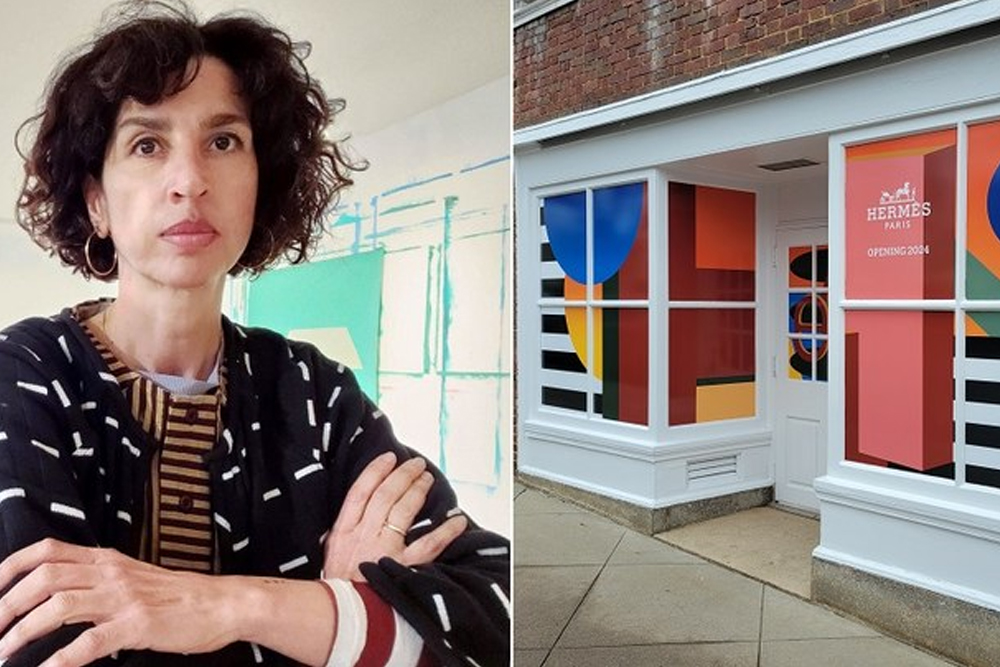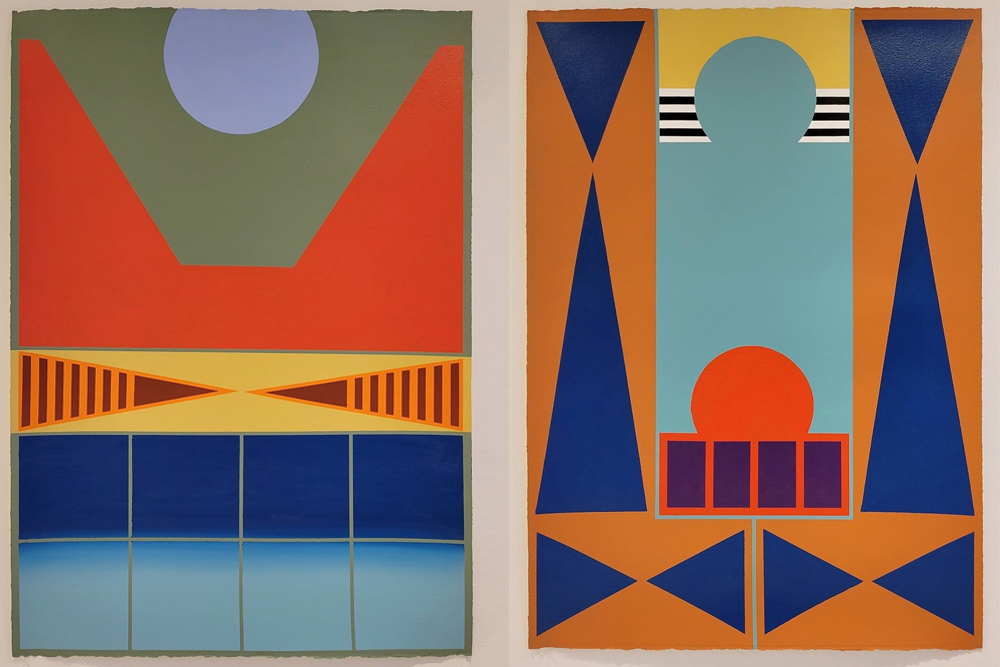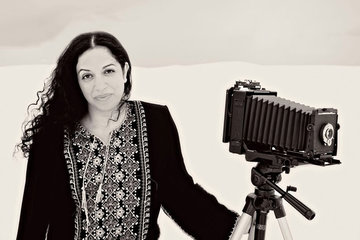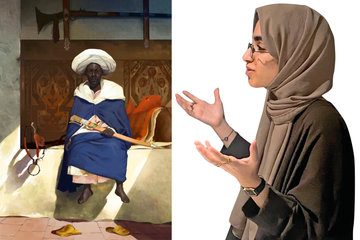
In honor of Arab-American Heritage Month, we celebrate the work of Dahlia Elsayed, a contemporary Egyptian-American artist. Through her fictional landscape paintings, Elsayed creates a colorful world with an element of fantasy and bold geometry, evoking a sense of a new place. Her work portrays a world that could exist in a different time, either in the past or the future.
In her earlier work, Elsayed explored the theme of belonging, as she grappled with navigating her personal connection to two different places: her body in America and her mind in Egypt. Elsayed was born to Egyptian parents in New York and grew up surrounded by Egyptian culture. Her childhood experiences, including the decorations in her house, the food, the language, and the smells, significantly influenced her aesthetics and understanding of place, color, shape, and form.

Elsayed still finds inspiration in the vibrant streets of Cairo, which she visits regularly. She sees beyond the beige sand and recognizes the incredible colors that exist in the city. She incorporates features of Arab architectural design, such as Islamic patterns, into her work, creating pleasing, optimistic visuals that imitate natural landscapes.

Elsayed's work has recently moved beyond the paint on canvas as a result of large-scale public art projects that have been commissioned by prestigious institutions including Hermès, Newark Liberty International Airport, and the Pennsylvania Train Station in New York. Elsayed is thrilled that her ideas are being realized on a human-scale and that people are responding positively to her work.
Overall, Dahlia Elsayed's work is a beautiful celebration of her Egyptian heritage and her experience growing up in America. She creates colorful and imaginative worlds that transport viewers to a new place, and her art is a testament to the power of culture and identity in shaping our perceptions of the world around us.

















